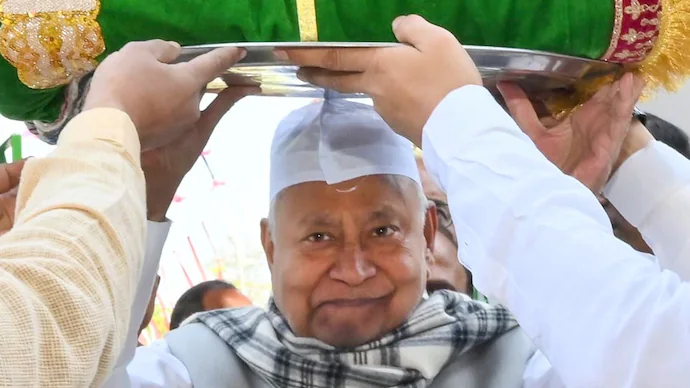
Months ahead of the Bihar Assembly elections, jitters have hit the JD(U) after five Muslim leaders quit the Nitish Kumar-led party over its support for the Waqf Amendment Bill. While Nitish Kumar, after severing ties with the NDA, gained a significant portion of Muslim votes in the 2014 Lok Sabha elections – cutting into the RJD’s primary vote bank – data on the post-2015 situation presents a different picture.
In the 2014 Lok Sabha election and 2015 Assembly polls, when Nitish was in the anti-Modi camp, he had a significant following among Muslim voters. When JD(U) contested in alliance with the Left, it gained 23.5% of the Muslim votes, as per the CSDS Lokniti survey. In the 2015 Assembly polls, when Nitish was a part of the Mahagathbandhan, the alliance bagged 80% of the Muslim votes, as per projections in reports.
In the 2020 Assembly polls, the JD(U) alliance could gather only 5% of Muslim votes. The 2019 Lok Sabha polls saw just 6% of the Muslims voting for the JD(U) alliance against 80% for the RJD. This trend more or less continued into the 2024 Lok Sabha polls, where just 12% of the Muslims in Bihar voted for the JD(U) alliance – a fall of 50 percentage points from the situation in 2014.
An analysis of four Muslim-dominated districts in Bihar, spread across 24 Assembly constituencies, shows JD(U) won 7 seats in the 2015 polls. However, in 2020, when JD(U) was with the NDA, it won only three. Muslims constitute 30% of the population in these districts. Thus, it clearly shows that the JD(U) fell out of favour of Muslims the moment it joined hands with the Modi-led NDA.




